#THEODOR HERZL
Explore tagged Tumblr posts
Text
Herzl: hey check out this novel I wrote about how cool it would be to have a society where Jews and Arabs and Greeks and Armenians all came together in the Levant to live as equals in a thriving multicultural society and revitalize the land after the ravages of the Ottoman Empire!
anti-Zionist: ZIONISM IS A RACIST IDEOLOGY THAT HAS ALWAYS BEEN ABOUT REPLACING INDIGENOUS ARABS WITH JEWS EVEN HERZL ADMITTED IT WAS ABOUT COLONIALISM
Herzl:

248 notes
·
View notes
Text
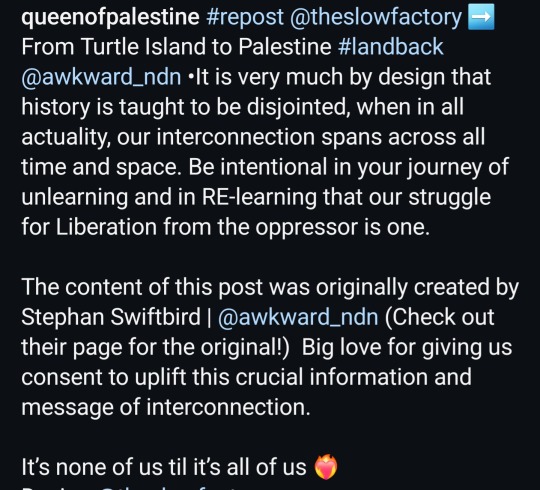
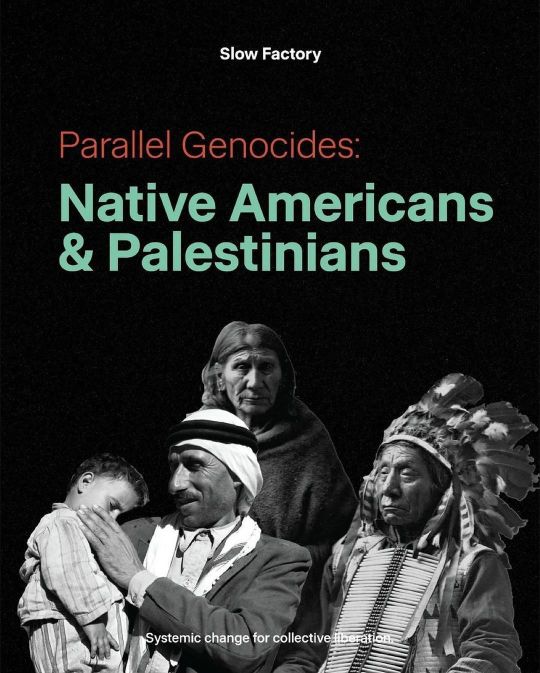
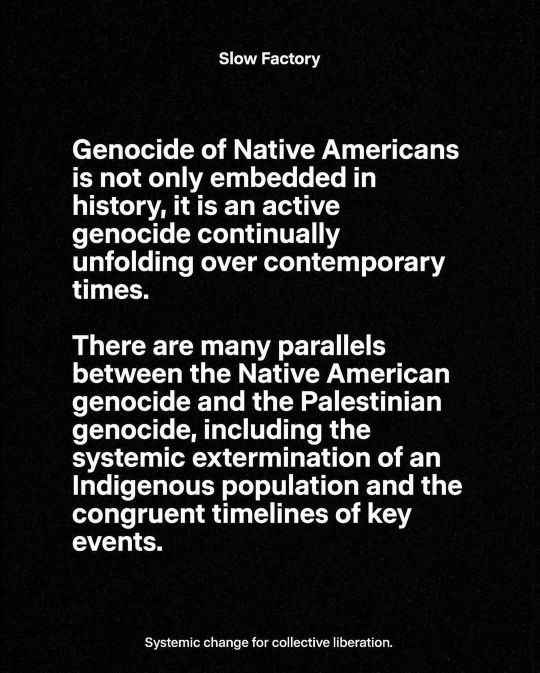
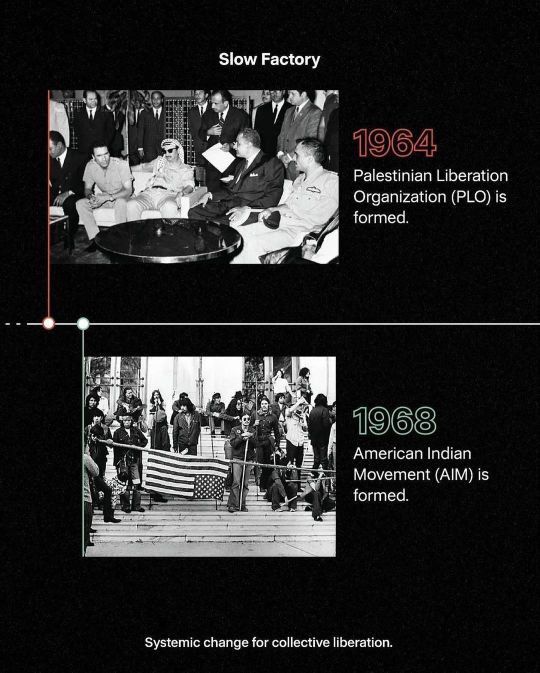
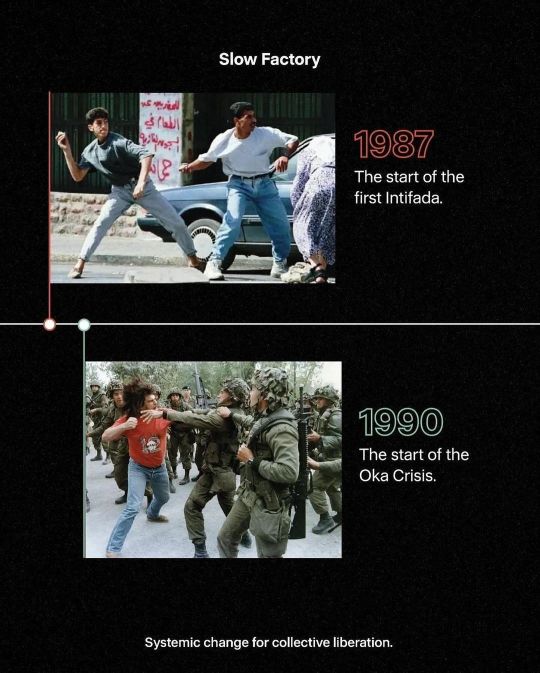
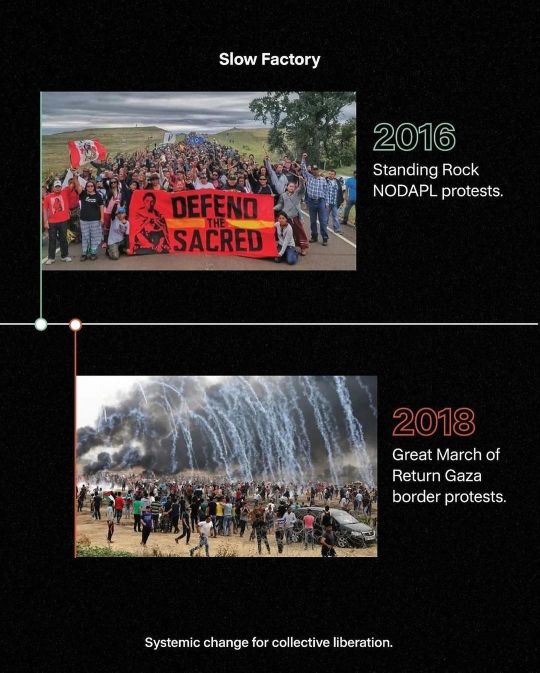
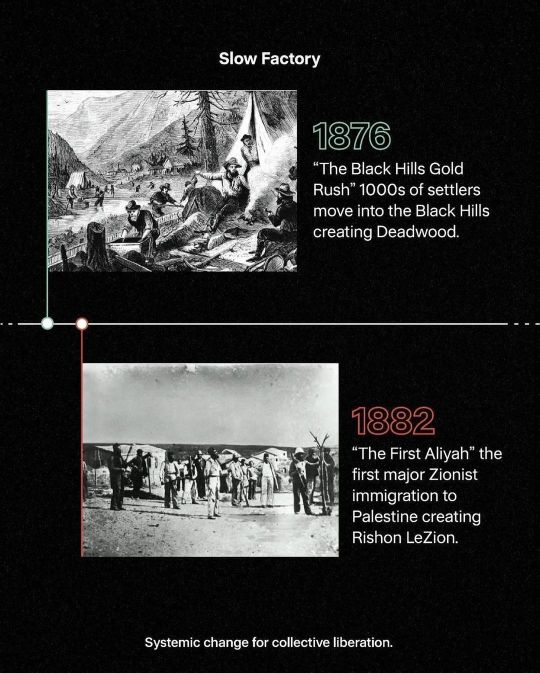
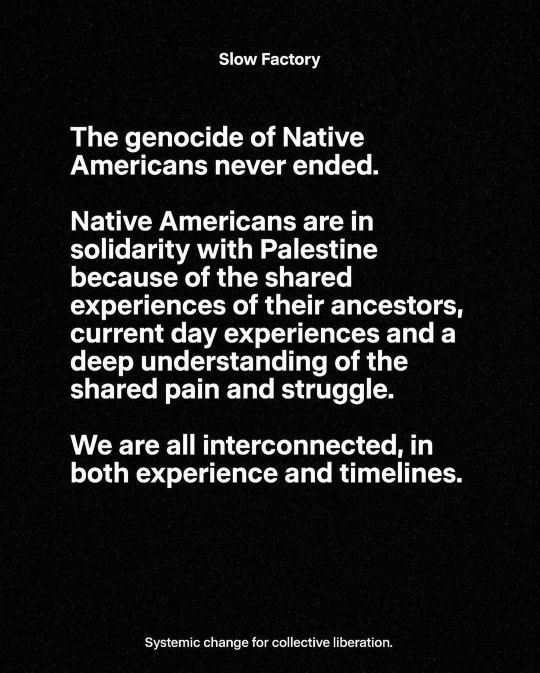
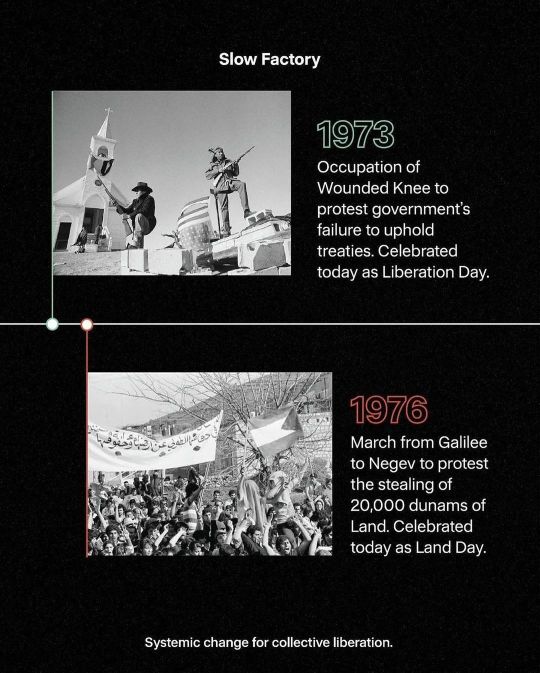
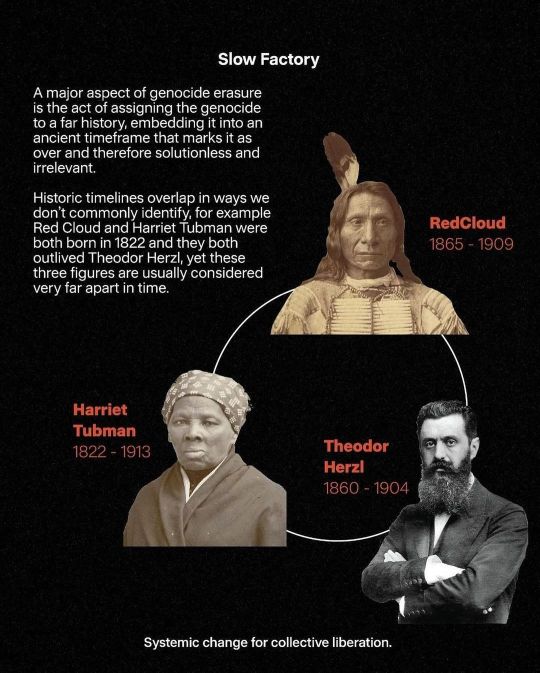
#native americans#Palestinians#apartheid#save palestine#israel is an apartheid state#ethnic cleansing#free palestine 🇵🇸#genocide#AIM#PLO#Wounded Knee#Trail of Tears#Great March of Return#iof war crimes#iof terrorism#israel is an illegal occupier#illegal settlements#reservations#Red Cloud#theodor herzl#zionism is nazism for the 21st century#connected in grief#solidarity#parallel genocides#extermination of indigenous peoples
122 notes
·
View notes
Text
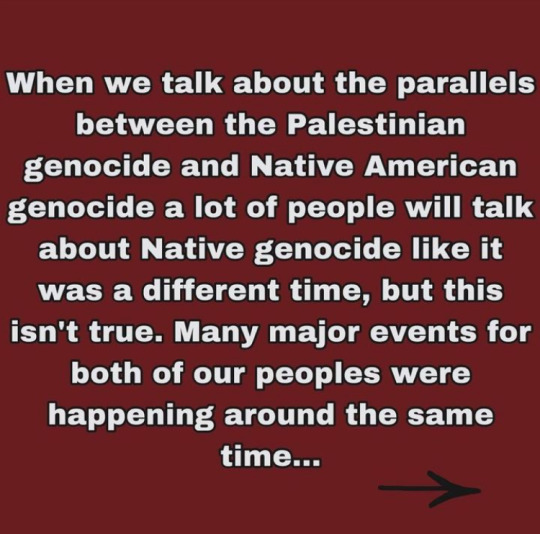
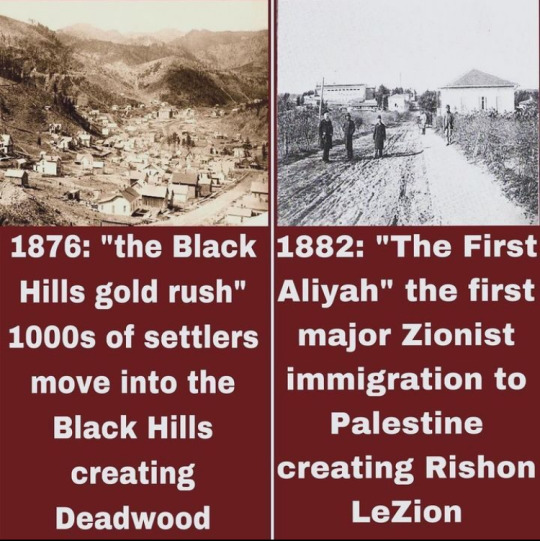
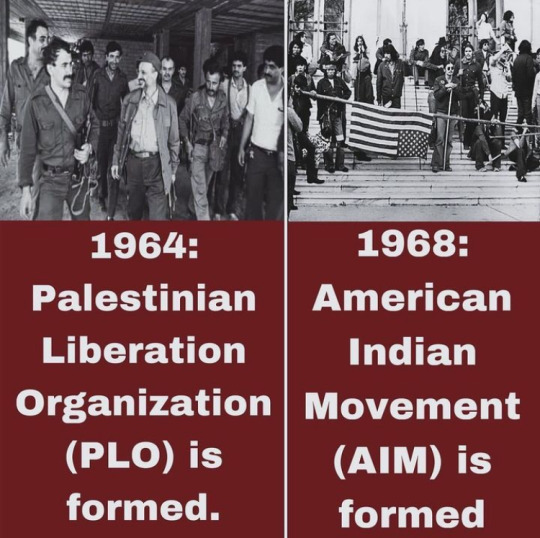
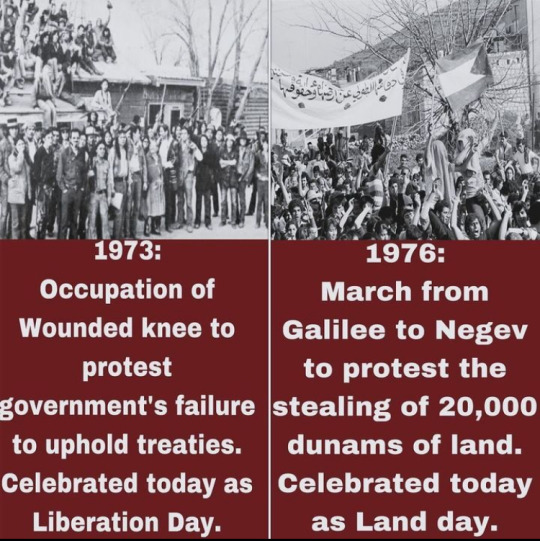

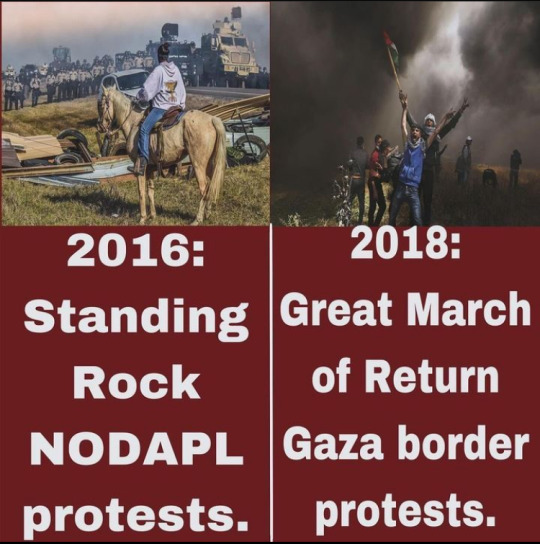
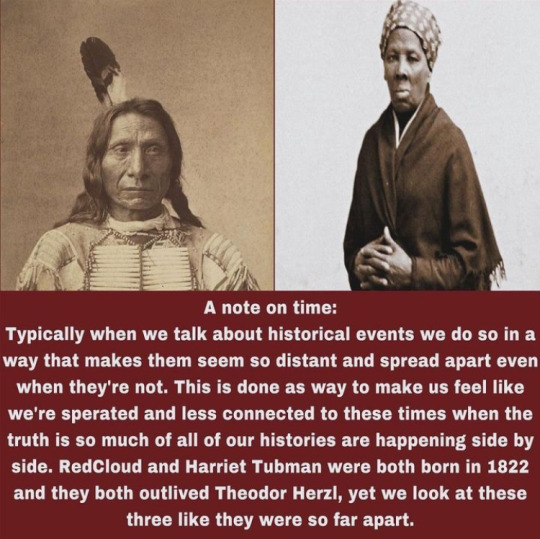
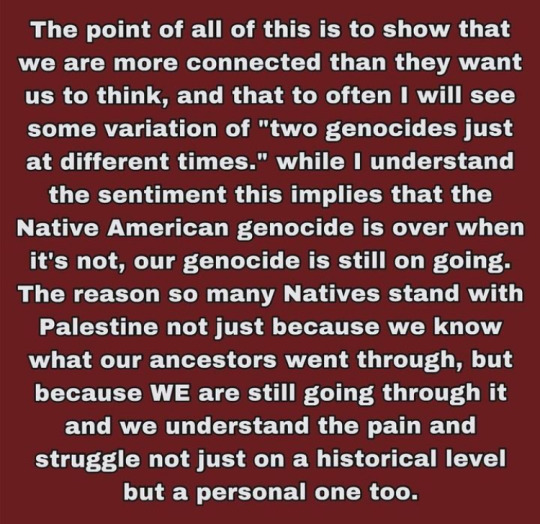
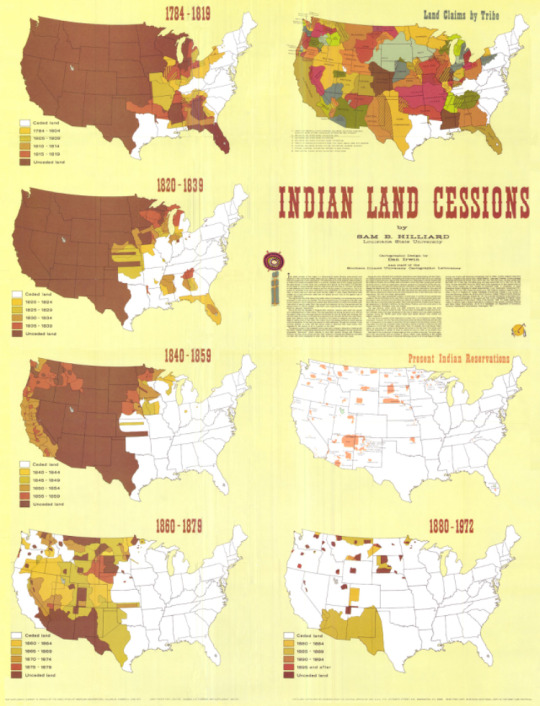
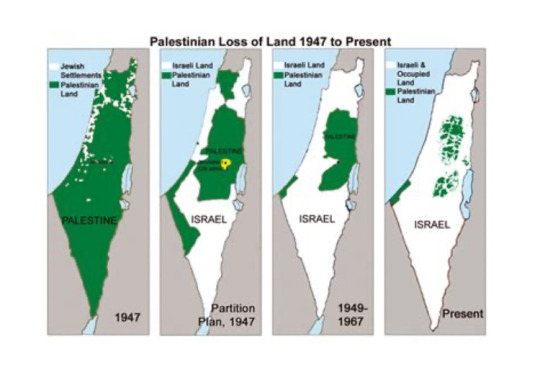
History may not fully repeat itself but it rhymes. Arms embargo now! Land back now!!
#relevant#fascisim#free palestine#history#colonization#end the occupation#illegal settlements#communism#socialism#anarchism#capitalism#late stage capitalism#encroachment#white supremecy#first nations#indigenous#turtle island#Harriet Tubman#Theodor Herzl#Red Cloud#fascist#police state
122 notes
·
View notes
Text
by Jake Wallis Simons
People often forget that Judaism is two millennia older than Islam and 1,500 years older than Christianity. Israel was the cradle of Jewish civilisation. At least a thousand years before the birth of Jesus Christ, Jerusalem’s most famous Jew, King David, made the city the capital of the Land of Israel. It has been home to greater or lesser numbers of Jews – the very word ‘Jew’ is a shortening of Judea, the ancient kingdom radiating from Jerusalem in the Iron Age – in Jerusalem ever since.
Culturally, Jews have always intertwined their identity with the land of Israel, particularly since they were exiled to Babylon around 598 BC, when their powerful yearning for return took hold. For millennia, Jews in the diaspora have prayed facing towards the Holy City, exclaimed ‘next year in Jerusalem’ at Passover, mourned the destruction of the Temple by breaking a glass at weddings, longed to be buried there, prayed at the remaining walls of the destroyed Temple, and visited on pilgrimage. Many throughout history have taken the step of uprooting their families and returning to their homeland. All these practices continue to this day.
A thread can be traced backwards through Jewish history that shows the ancient roots of the ideal of repatriation. Beginning in 1516, Palestine – as it had been renamed by the Romans – fell under Ottoman rule, which would last for more than 400 years. Less than 50 years after the conquest, Joseph Nasi, the Duke of Naxos, a Portuguese Jewish diplomat favoured by the Ottomans, attempted to return Jews to their homeland without regard for scriptural prophecies about awaiting the coming of the messiah. In a way, he was the first Zionist.
The fortunes of the Jews of the Holy Land rose and fell over the following centuries. In 1860, the British financier Sir Moses Montefiore, who believed in the divine providence of the British Empire and the Jewish return to Zion, founded the community of Mishkenot Shana’anim just outside the Old City of Jerusalem. Composed of red-brick alms houses and a windmill, it was the earliest forerunner of the future state (the windmill still stands today).
Modern Jewish migration to Palestine began in 1883 with an influx of 25,000 Jewish arrivals, many fleeing anti-Semitic mobs in Russia and inspired by a desire to return to their ancestral lands. Jews also came from as far afield as Persia and Yemen, grouping into their own neighbourhoods. Immigrants from Bukhara, Uzbekistan, including the Moussaieff family of jewellers who had cut diamonds for Genghis Khan, created the Bukharan Quarter (Shkhunat HaBucharim), with its distinctly Central Asian feel. Their imperative to return had been building for thousands of years.
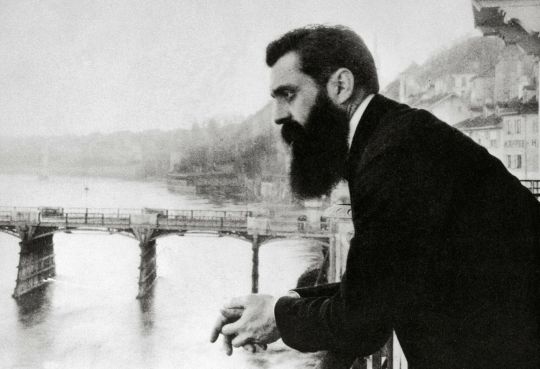
Theodor Herzl in Basel, Switzerland, during the first Zionist Congress, 1897.
Writing in the Jewish Chronicle in 1896, Theodor Herzl, the father of modern Israel, laid out the concept of Zionism. ‘I am introducing no new idea’, he pointed out. ‘On the contrary, it is a very old one. It is a universal idea – and therein lies its power – old as the people, which never, even in the time of bitterest calamity, ceased to cherish it. This is the restoration of the Jewish State.’ He added: ‘It is remarkable that we Jews should have dreamt this kingly dream all through the long night of our history. Now day is dawning. We need only rub the sleep out of our eyes, stretch our limbs, and convert the dream into a reality
24 notes
·
View notes
Text
Something that I'll never understand is when people quote Theodor Herzl when talking about (modern) Israel & Zionism. Like yes, he was one of the people who is sort of like a "founding father" of Zionism, but he's...not directly correlated to Israel (I'm fairly sure). I mean this in the way that people say that when Israel formed, they all believed exactly what Herzl did and were all his "henchmen" (propaganda much?)
Like, I hate to break it to you guys, Herzl died more than 40 (forty) years before modern Israel was formed (he died 1904, the modern state of Israel formed 1948).
(this is more directed to the people on the extremist woke left who always quote Herzl out of context. context is important!!)
*also, modern state of Israel since the ancient kingdoms of Israel were definitely not inspired by Herzl....
27 notes
·
View notes
Text

I want you to look at my labor of love
50 notes
·
View notes
Text
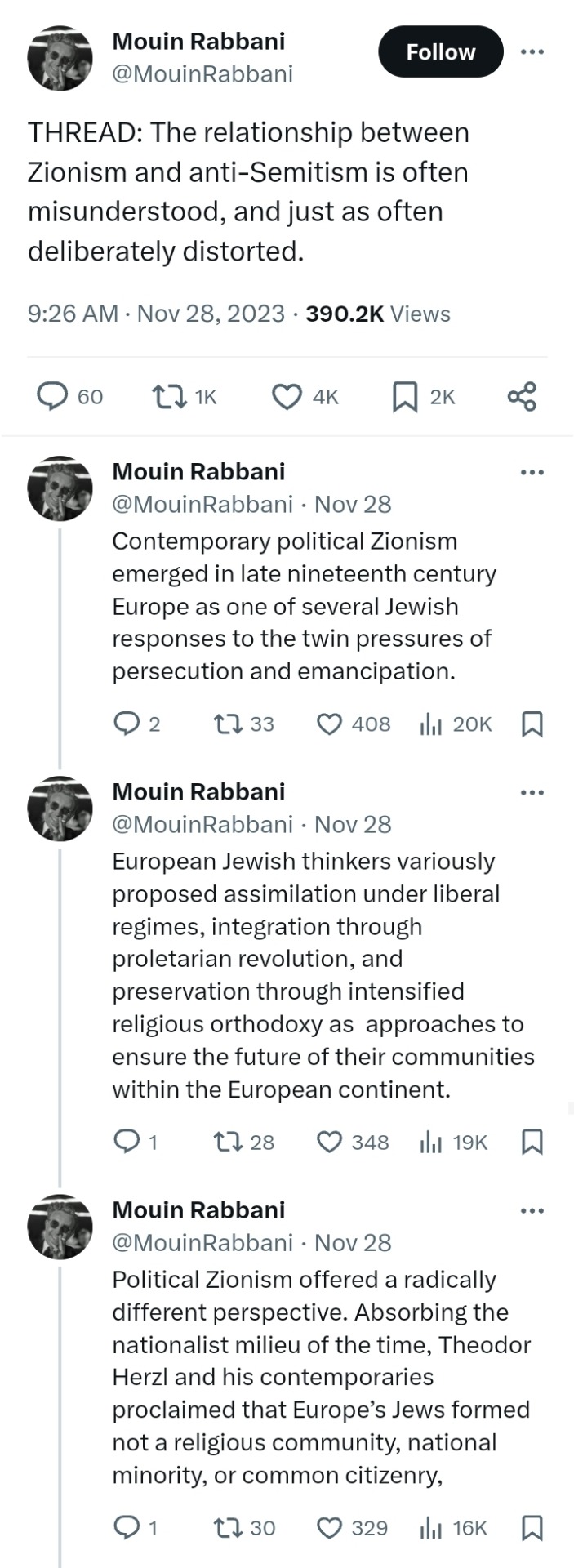
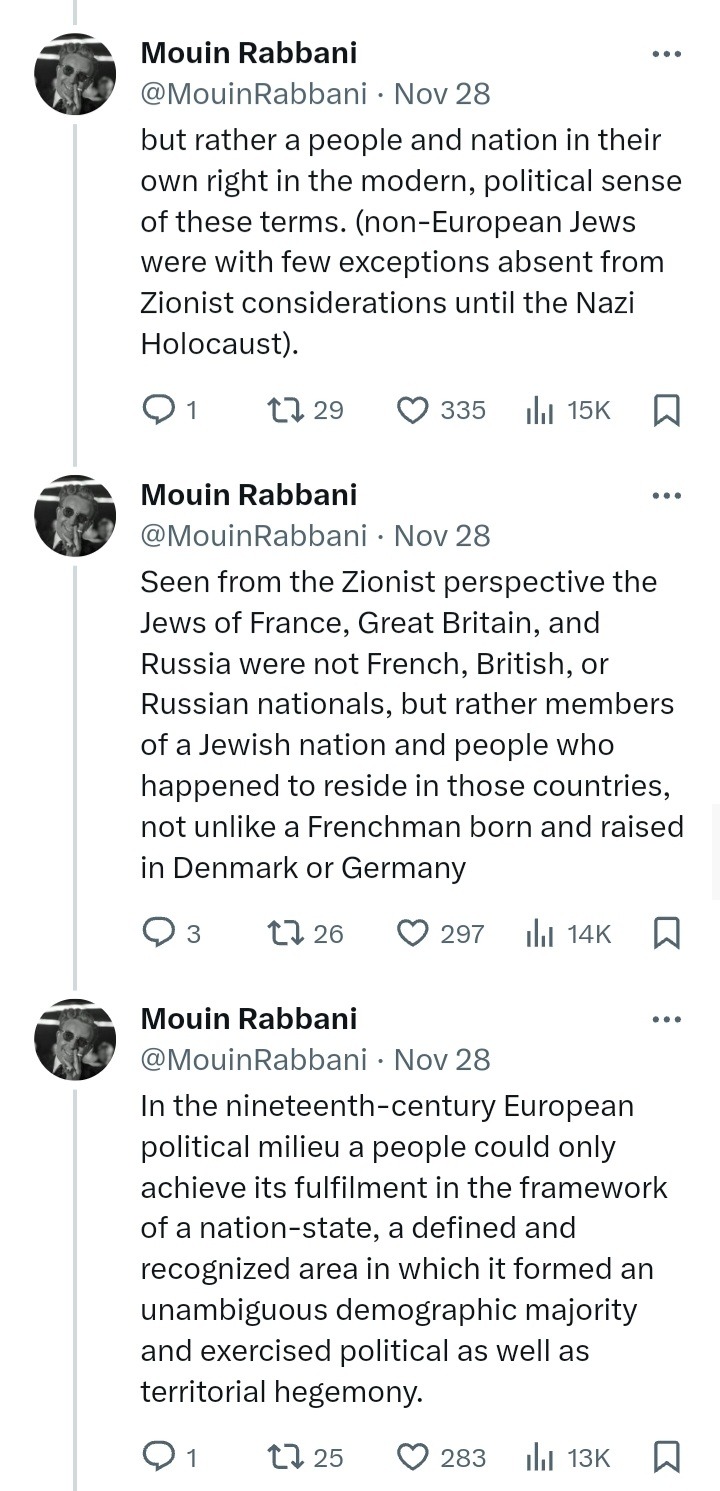
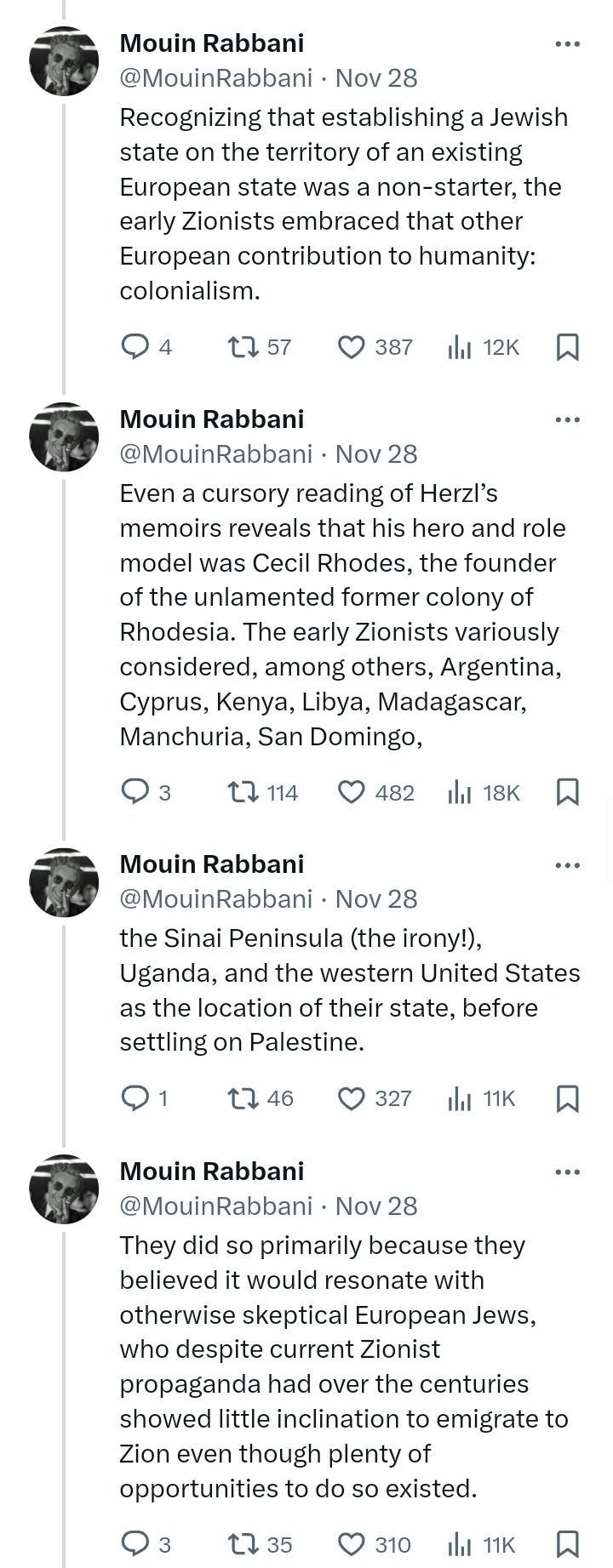
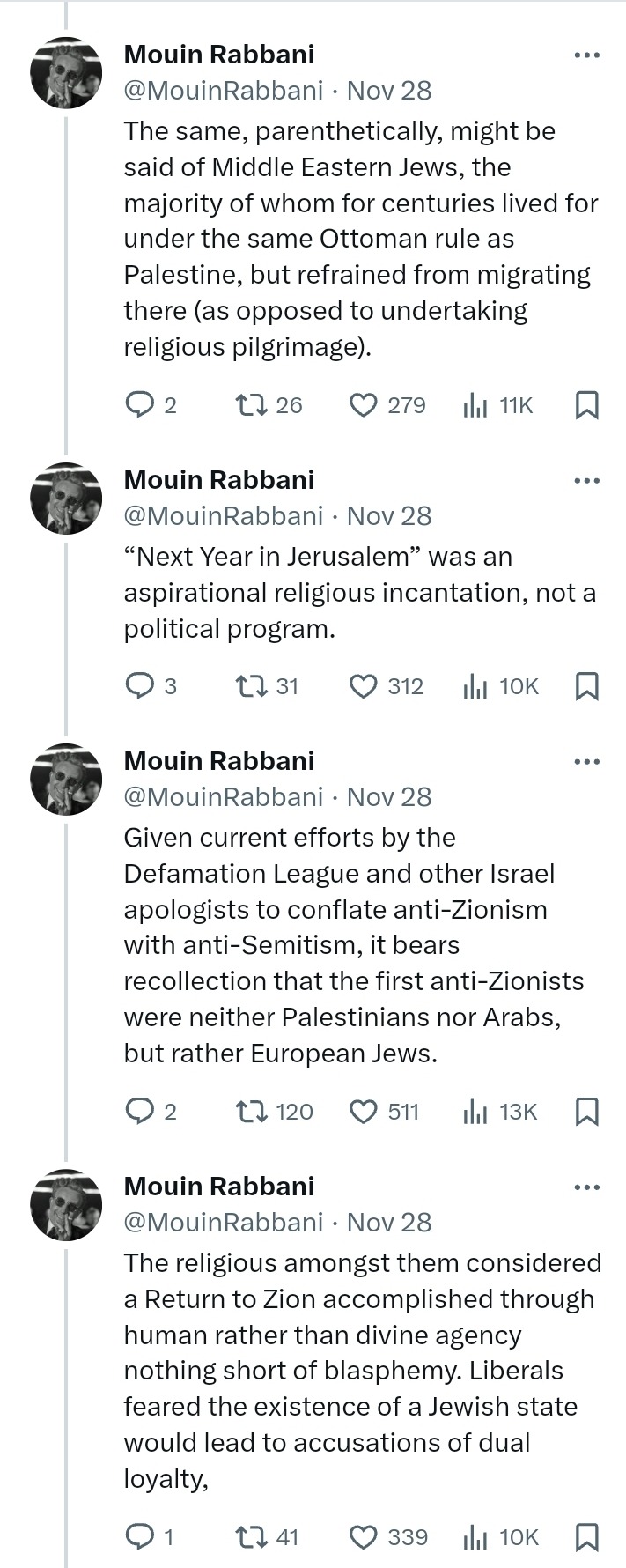
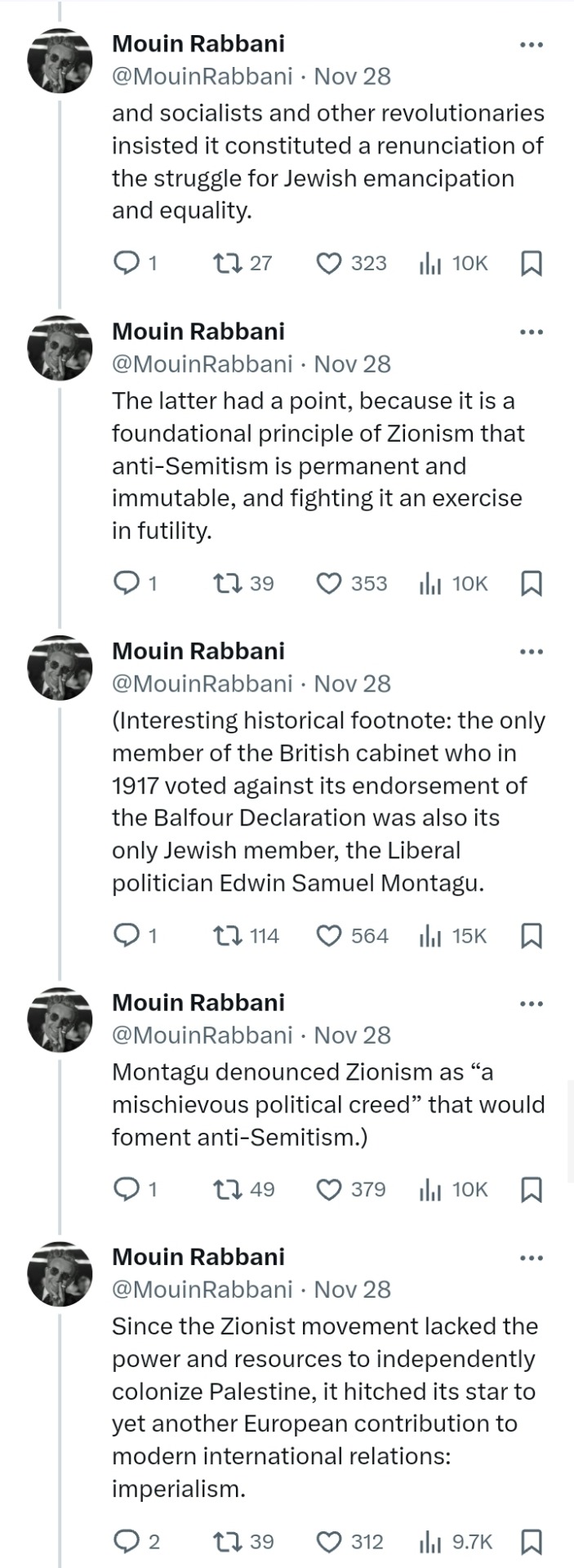
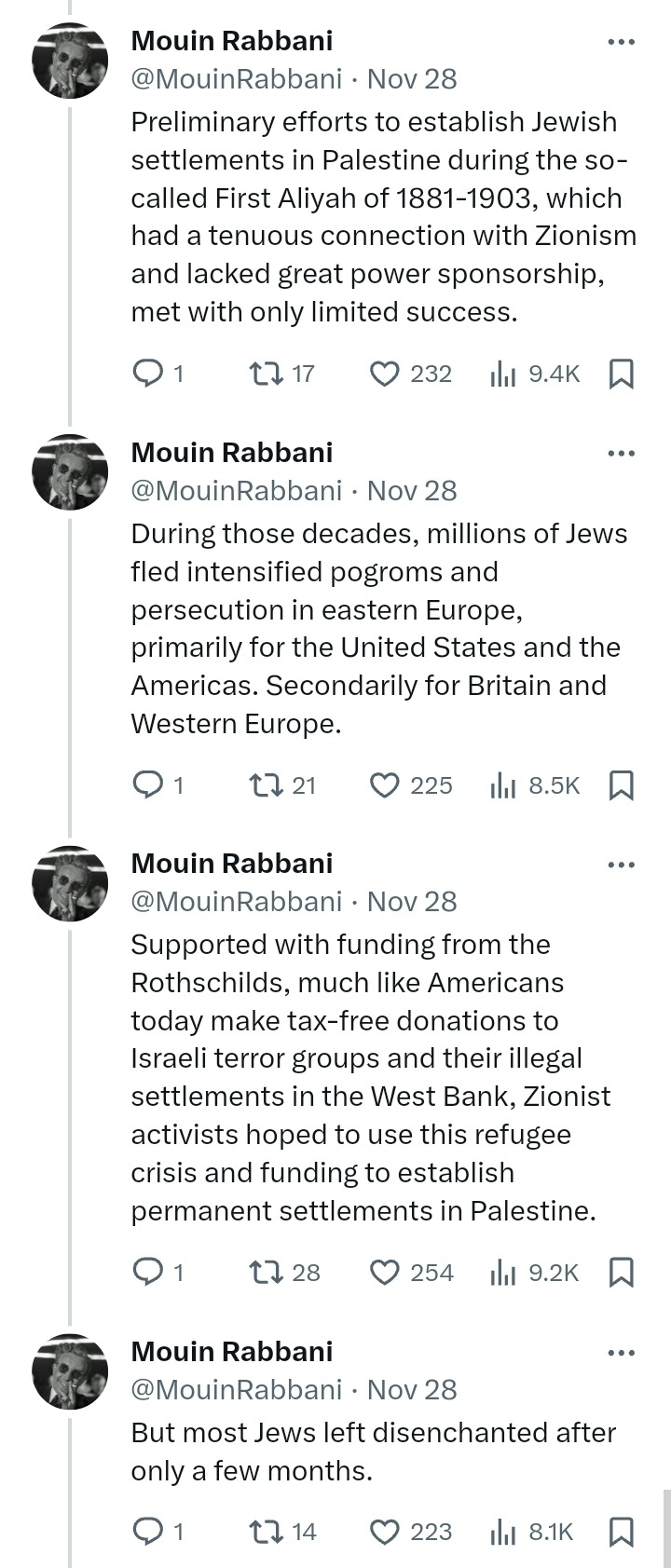
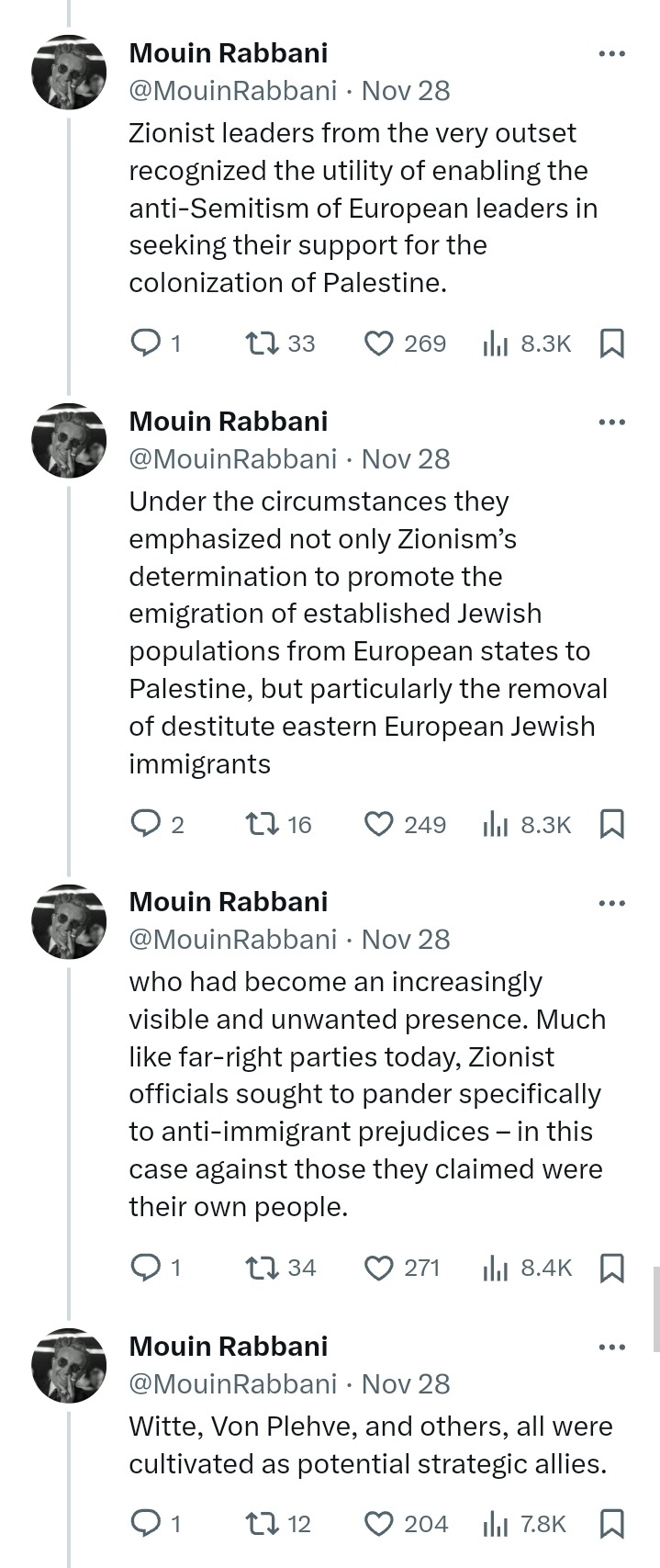
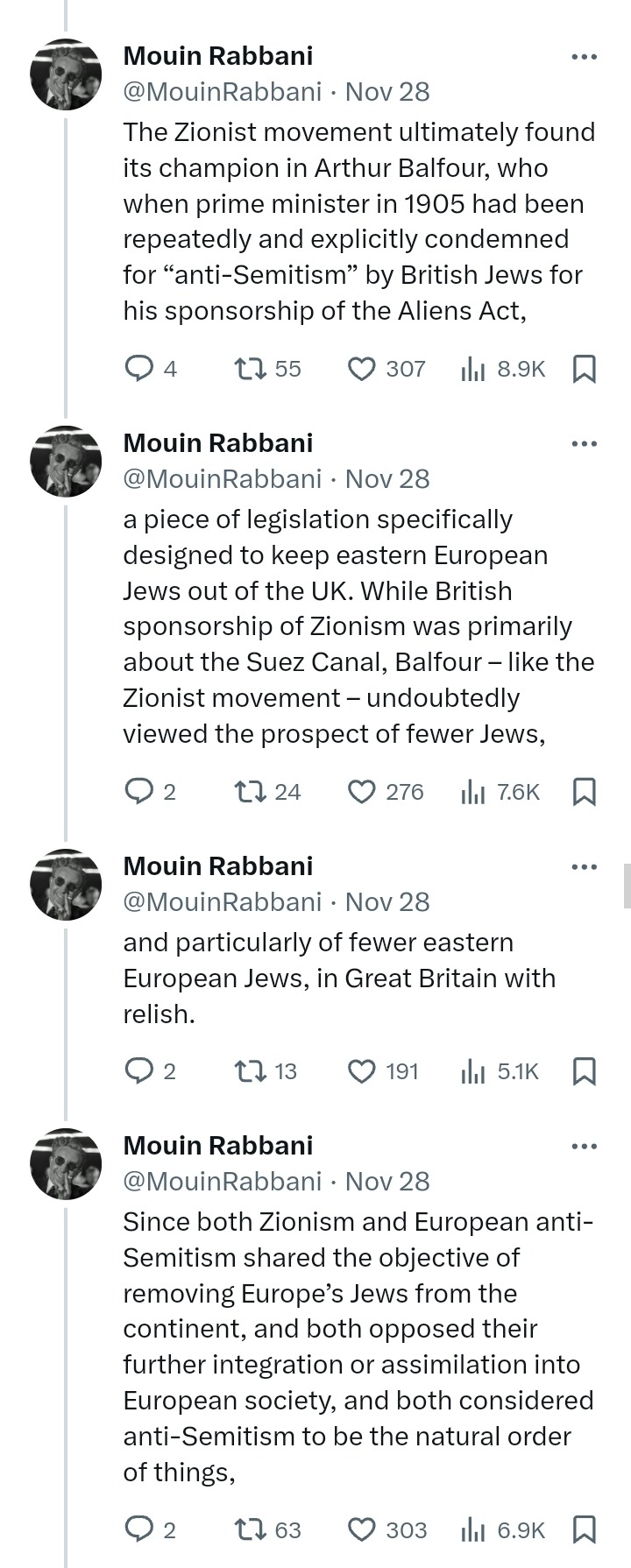
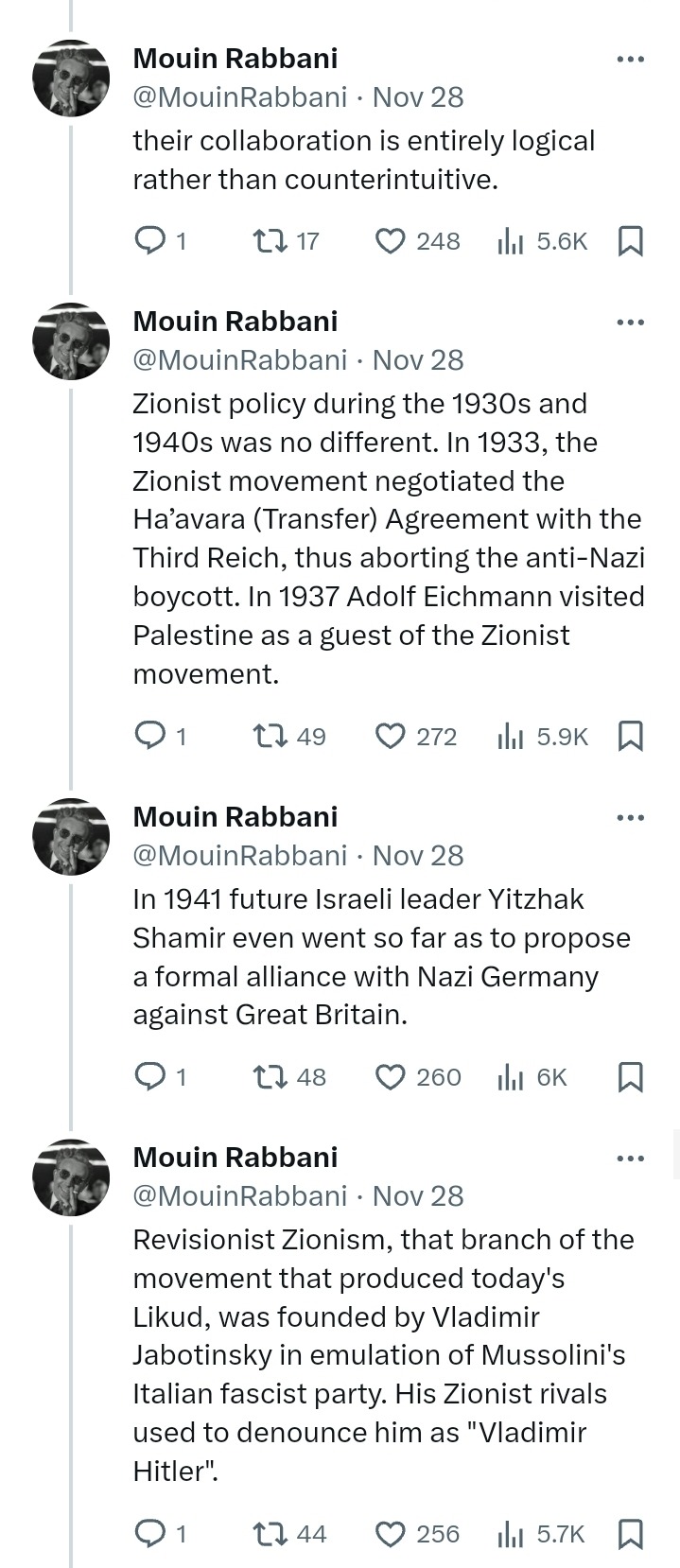
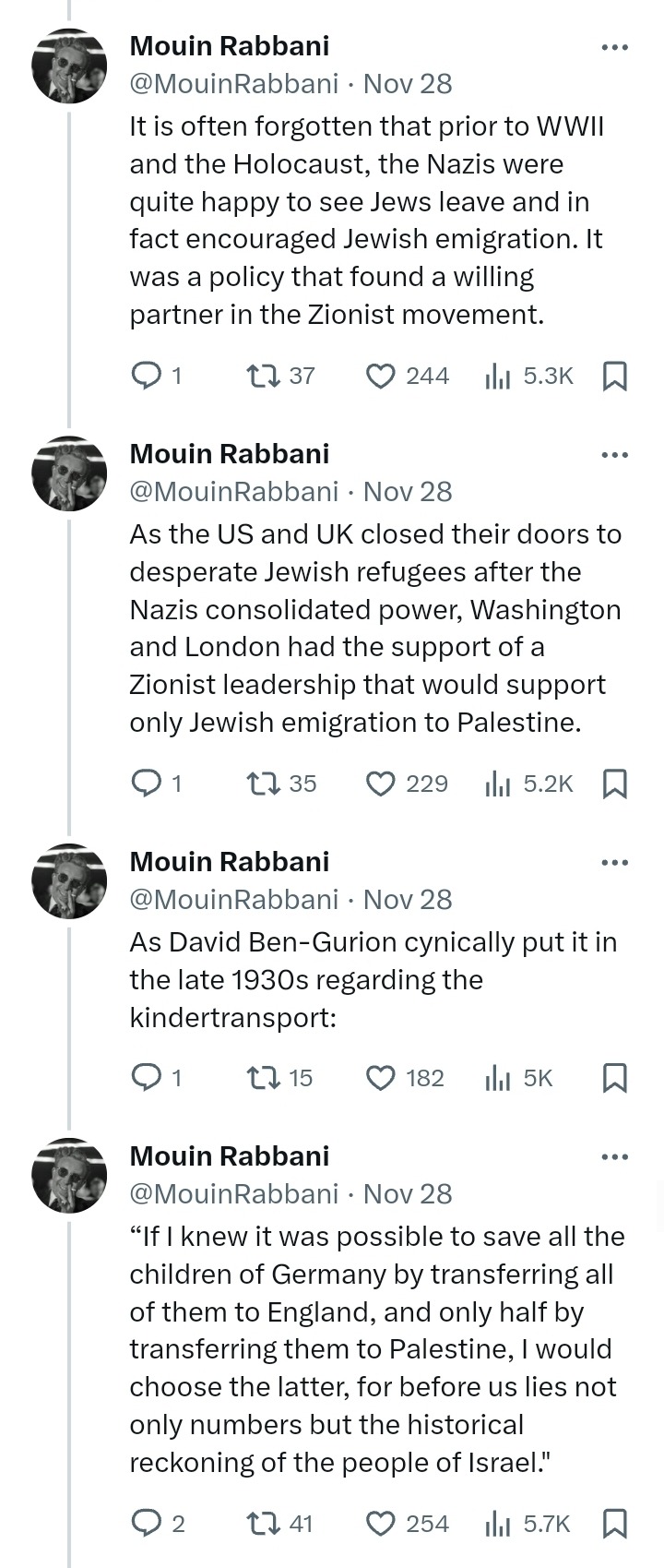
(cont'd in reblog.)
#free palestine#anti zionisim#anti zionist#colonization#imperialism#apartheid#antisemitism#world history#western imperialism#theodor herzl#colonialism#balfour declaration#cecil rhodes#racism#anti blackness#zionist propaganda#settler colonialism#palestinian genocide#christian zionism#xenophobia#immigration#middle east#islamphobia#david ben gurion#holocaust#nazi germany#MENA#knee of huss#xtianty
68 notes
·
View notes
Text
" Un pensiero o idea di trasferimento [del popolo palestinese risale] ai primi tempi del movimento sionista, come mostrerebbe un'annotazione del diario di Theodor Herzl: «Dobbiamo espropriare con delicatezza. […] Cercheremo di indurre la popolazione in miseria ad attraversare il confine procurandole un'occupazione nei paesi di transito; negandogliela, però, nel nostro. […] Il processo di espropriazione e di sgombero dei poveri deve avvenire con discrezione e circospezione.»¹ A distanza di quarant'anni, Ben-Gurion ribadiva il concetto: «Il trasferimento di popolazione è già avvenuto nella valle di Jezreel, nella piana del Sharon e in altri luoghi. Siete a conoscenza del lavoro del Fondo nazionale ebraico in proposito. Ora occorre realizzare un trasferimento di ben altre dimensioni.»² Durante la guerra del 1948, Ben-Gurion mise in pratica le sue raccomandazioni. In una campagna nota come "Operazione Hiram" fu realizzato un trasferimento indiscriminato di popolazione dalla Galilea. Durante questa campagna, ha scritto Morris, le forze armate sioniste eseguirono "un numero insolitamente elevato di esecuzioni di popolazione civile contro muri o nei pressi di un pozzo con notevole metodicità". Molto scrupolosamente, Morris cita ventiquattro episodi di terrorismo o di massacro, di cui i più efferati ebbero luogo a Saliha (78 uccisi), Lod (250), Dawayima (centinaia) e, ovviamente, nel già citato villaggio di Deir Yassin. Alcuni di questi massacri furono probabilmente perpetrati per ragioni tattiche: a Dawayima, nei pressi di Hebron, per esempio, "una colonna entrò nel villaggio sparando all'impazzata e uccise qualsiasi cosa si muovesse". Altri massacri rispondevano, invece, all'intento strategico di terrorizzare la popolazione affinché fuggisse. Questi massacri non furono certo tenuti nascosti dalla popolazione palestinese. Dopotutto, come ebbe a dire una volta Lenin, l'intento del terrorismo è terrorizzare. (Morris, ricordiamo per inciso, ha giustificato i sionisti richiamandosi alla logica del ben noto aforisma di Lenin: "Per fare la frittata occorre rompere le uova").
Secondo un testimone oculare di Deir Yassin: «Deir Yassin era un villaggio che fu attaccato dagli israeliani, o dai sionisti, il 9 aprile 1948. […] Incontrerà delle persone che le diranno: "Questo è quello che successe a Deir Yassin", perché loro erano là. Ho incontrato una donna che mi ha detto che le portarono suo figlio e le dissero di prenderlo in grembo e poi lo uccisero. Usavano coltelli, baionette. Un macello; non un combattimento. Non c'era nessuno da combattere. Erano prevalentemente donne e bambini. Molte, moltissime persone furono massacrate in quel villaggio. Questo massacro terrorizzò l'intera Palestina. Tutti parlavano del massacro di Deir Yassin.» Complessivamente, furono cancellati oltre cinquecento villaggi palestinesi. La maggior parte dei palestinesi che fuggì fini in Cisgiordania, nella striscia di Gaza, nei paesi arabi limitrofi. Quelli con un certo grado di istruzione, con specializzazioni o disponibilità economica cercarono di rifarsi una vita meglio che poterono, talvolta in luoghi lontani come il Golfo persico, l'Europa, le Americhe. Quelli che non furono altrettanto fortunati finirono nei campi profughi, organizzati, inizialmente, dallo United Nations Releif for Palestine (Unrp). "
¹ B. MORRIS, Revisiting the Palestinian Exodus of 1948, in E. L. ROGAN e A. SHLAIM (a cura di), The War of Palestine, Rewriting the History of 1948, Cambridge University Press, Cambridge, 2001, p. 41 [trad. it. La guerra per la Palestina: riscrivere la storia del 1948, Il Ponte, Bologna, 2004]. ² Ibidem, p. 43.
---------
James L. Gelvin, Il conflitto israelo-palestinese. Cent'anni di guerra, traduzione di Piero Arlorio, Einaudi (collana Piccola Biblioteca Einaudi n° 357), 2007¹; pp. 179-181.
[Edizione originale: The Israel-Palestine Conflict, Cambridge University Press, 2005]
#James L. Gelvin#Palestina#Israele#Il conflitto israelo-palestinese#saggi#saggistica#libri#letture#leggere#Medio Oriente#questione palestinese#Gaza#Cisgiordania#Territori occupati#sionismo#nazionalismi#resistenza#Giordania#citazioni#Theodor Herzl#David Ben Gurion#Fondo nazionale ebraico#deportazioni#Operazione Hiram#Benny Morris#Nuova storiografia israeliana#crimini di guerra#pulizia etnica#genocidio#diaspora palestinese
25 notes
·
View notes
Text
"Herzl replied—and quickly, in a letter on March 19. His letter was probably the first response by a leader of the Zionist movement to a cogent Palestinian objection to its embryonic plans for Palestine. Herzl simply ignored the letter’s basic thesis, that Palestine was already inhabited by a population that would not agree to be supplanted. Although Herzl had visited Palestine once, in an 1898 visit timed to coincide with that of German Kaiser Wilhelm II, he (like most early European Zionists) had not much knowledge of or contact with its native inhabitants. Glossing over the fact that Zionism was ultimately meant to lead to Jewish control of Palestine, Herzl deployed a justification that has been a touchstone for colonialists and that would become a staple argument of the Zionist movement: Jewish immigration would benefit Palestine’s Indigenous inhabitants. “It is their well-being, their individual wealth, which we will increase by bringing in our own,” Herzl wrote, adding that “no one can doubt that the well-being of the entire country would be the happy result.” Herzl’s letter addressed a consideration that Yusuf Diya had not even raised: “You see another difficulty, Excellency, in the existence of the non-Jewish population in Palestine. But who would think of sending them away?” But Herzl had underestimated his correspondent. From Yusuf Diya’s letter, it is clear that he understood perfectly well that at issue was not the immigration of (as Herzl put it) “a number of Jews” into Palestine, but rather the transformation of the entire land into a Jewish state. Instead, Herzl offered the preposterous inducement that the colonization, and ultimately the usurpation, of their land by strangers would benefit the people of that country. Herzl’s reply to Yusuf Diya appears to have been based on the assumption that the Arabs could ultimately be bribed or fooled into ignoring what the Zionist movement actually intended for Palestine. This condescending attitude toward the intelligence, not to speak of the rights, of the Arab population of Palestine was to be serially repeated by Zionist, British, European, and American leaders in the decades that followed, down to the present day. As for the Jewish state that was ultimately created by the movement that Herzl founded, as Yusuf Diya foresaw, there was to be room for only one people, the Jewish people. As for the others, “sending them away” was indeed what happened, despite Herzl’s disingenuous remark." - Rashid Khalidi, The Hundred Years' War on Palestine: A History of Settler Colonialism and Resistance, 1917–2017
79 notes
·
View notes
Text
#anti zionisim#deir yassin#theodor herzl#west bank#south africa#israel is evil#Hebron#jerusalem#Theodore herzl#gaza#New York Times#فلسطين#al khalil#albert einstein#palestine#free palestine#free gaza#zionistterror#Zionists are Nazis#israel#israeli war crimes#nazis#israel is a terrorist state#israel is an apartheid state#israelis are terrorists#i stand with palestine#israel is a war criminal#israel is a settler colony#israel is a genocidal state#israeli apartheid
43 notes
·
View notes
Text
Theodor Herzl:"I gave my heart's blood for my people".

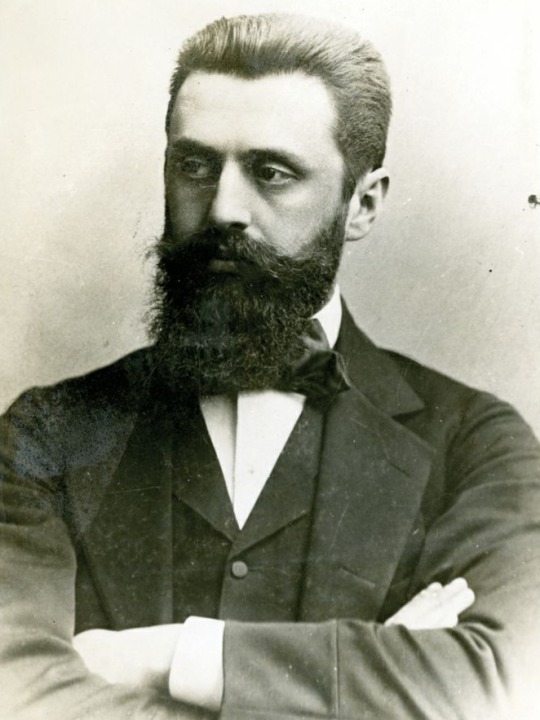
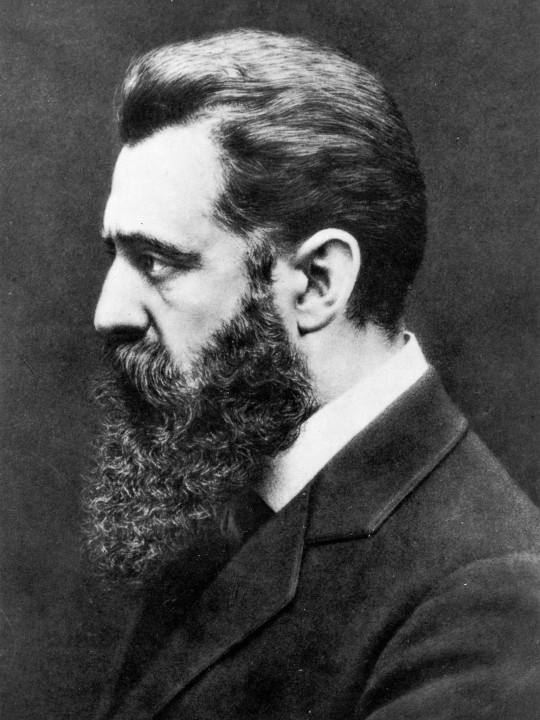

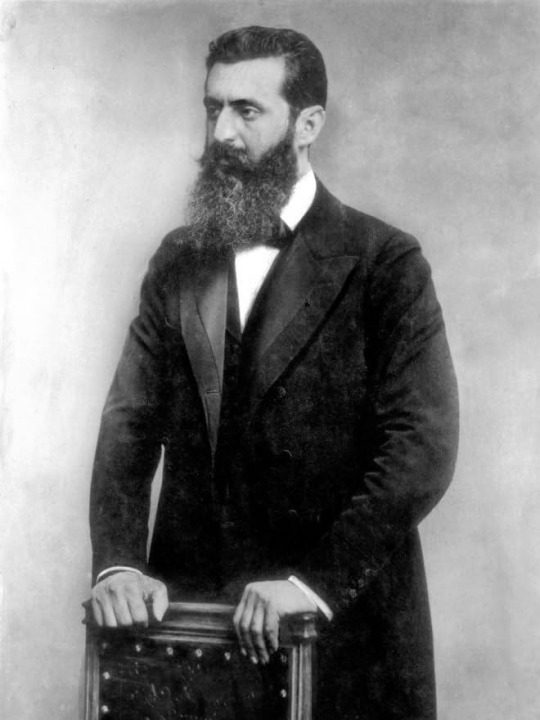

20 notes
·
View notes
Text

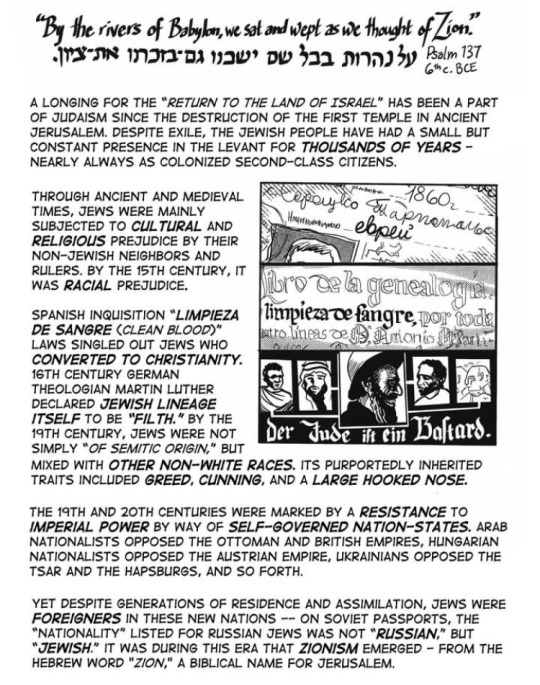

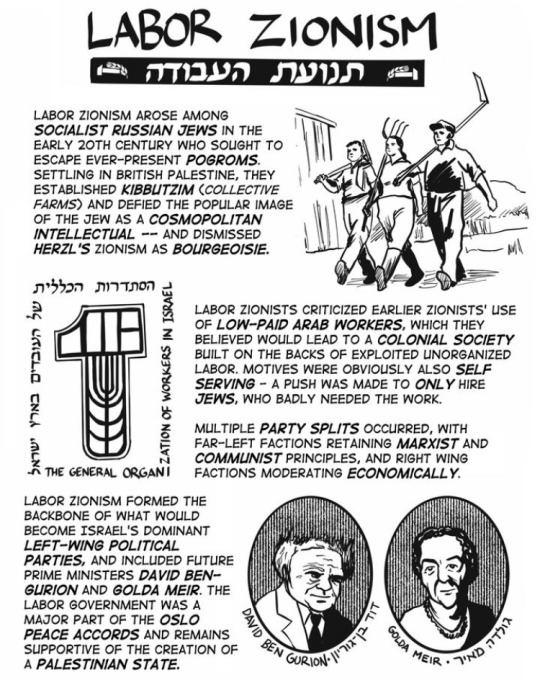


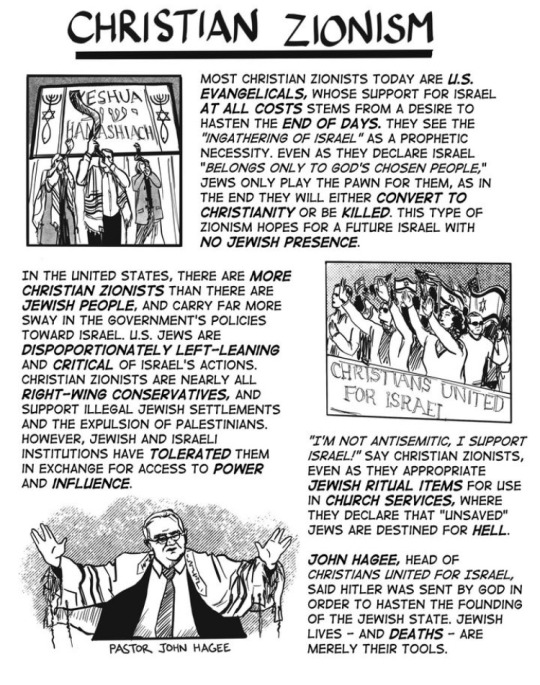
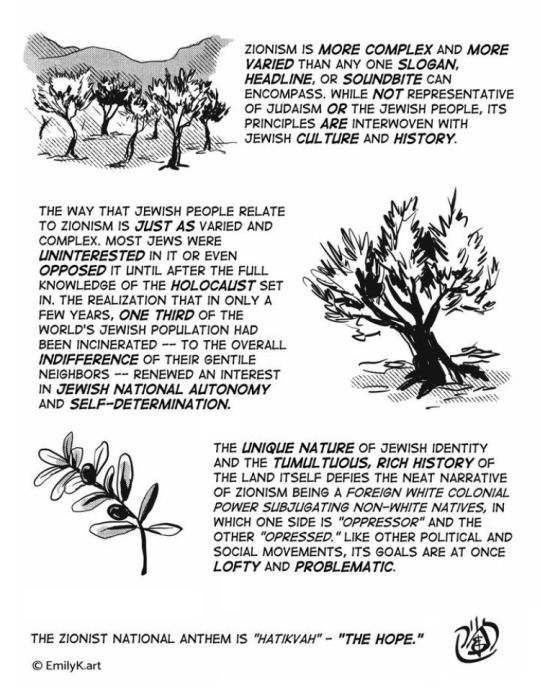
By Emily K.
Source: https://www.instagram.com/p/Cz-ja99M6UG/?igshid=ODhhZWM5NmIwOQ==
#emily if you see this and want it taken down just let me know and i will!#it said free so i figured free distribution with credit wouldn’t be a problem but if it is just message me & I’ll take it down :)#zionism#theodor herzl#jewish history#jewish culture#judaism#jewish#jumblr#israel#palestine#political zionism#labor zionism#revisionist zionism#religious zionism#christian zionism#shoah mention#israeli history#history of israel#antisemitism#jews#david ben gurion#nuance#i/p#infographic#history#explainer#the jewish state#tel aviv#hatikvah
299 notes
·
View notes
Text

#XIX Europe#ethnically clean state ideology#Presence of gypsies and juish populations in Europe hampers the ethnically pure state ideology (XIX colonialisms)#hegemonic hate against juish#pogrom#Sionism created in Vienne´s Bourgoisie#theodor herzl#1897#“We will create an ethnically clean colonial juish state!”#BUND: juish revolutionary workers against sionism#religious juish against sionism#Balfour#christian sionist#proud of the declaration: juish out!#1905: speech and law against revolutionary juish#1917: Declaration#1933: Havaara agreement between Nazis and Sionists#60 000 juish out of Germany#Palestine#sionist institutions created before WWII !#1901: KKL juish national funds#1922: INSTADRUM sindicate#1937: MEKOROT#1921: SOLEBONE#APOALIM#Palestinian pay for European Antisemitism#Europe never opened its borders and states to juish after WWII#Antisemite Sionists´s dollars#today 40 milion of Christian Sionists in US#colonialism
19 notes
·
View notes
Note
what did you mean when you said, world war I and II were a zionist plot?
I'd like to start off by saying, that I am not a Holocaust denier and my condolonces go to all the people who suffered through that tragedy. This is not an accusation towards ordinary Jewish people, but to Zionist elites from wealthy families such as the Rothschilds.
Who are the Rothschilds?
Rothschild are an Ashkenazi family who got their wealth from banking since the times of the Holy Roman Empire (mid to late 1700s) and have spread throughout different Western European countries, influencing politics and funding wars. Fun fact: Paris Hilton's sister Nicky married a Rothschild, only mentioning this so you see how they are still very much relevant in the modern world of old money elites.
One famous example of a Rothschild funded war is the Napoleonic Wars (1803 -1815), which some could say was one of their first attempts at conquering Palestine.
WWI
Most people in the west learned about World War One through the Western/European front but not as much about what happened in the Middle East. Britain allied with Arab rebels against the Ottoman Empire. The Arabs were promised their own independent nation states, but in actuality they ended up handing over much of the land to the British and French. This is why there was "The British Mandate of Palestine", and guess who Britain was working for? Rothschild.
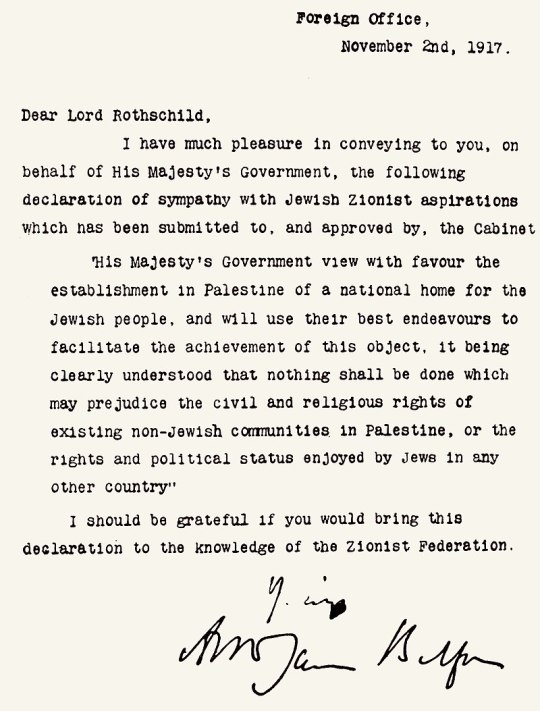
WWII
World War Two saw a rise in anti-semitism which made the idea of Zionism more appealing to Jews in Europe. Naturally they wanted some place they could go where they weren't being persecuted, many went to Palestine as refugees. There are two books about Zionist collaboration with the Nazis, one of them written by a Jewish man. Also one of the rabbis of Neturei Karta said in a speech that the occurrence of the Nazi Holocaust was irrefutable and spoke about the murder of his own grandparents at Auschwitz, but claimed that Zionists had "collaborated with the Nazis" and "thwarted...efforts to save...Jews" and expressed solidarity with the Iranian position of anti-Zionism.
We all know now the wars ended in their favour with the creation of Israel in 1948.
21 notes
·
View notes
Text
Zionism emerged just as European nations were dividing Africa.
Taking advantage of the European interest in colonization, Herzl sought the backing of European governments in establishing a Jewish state. To European leaders he argued that Zionism would serve their interests in the Middle East.
"For Europe," Herzl said, "we could constitute part of the wall of defense against Asia; we would serve as an outpost of civilization against barbarism."
Yet Palestine was only one of several possible sites discussed for settlement. In 1903, at Herzl's request, Britain offered Uganda as a Jewish state. The 1903 Zionist congress voted to send a commission there but let the matter drop.
In 1904 Herzl approached King Victor Emmanuel III of Italy and asked for Tripoli (north Africa) as a Jewish state. The king refused. To the sultan of the Ottoman Empire, Abdülhamid II, Herzl argued that Jews would help prevent an Arab uprising against the empire.
Herzl approached Britain because, he said, it was "the first to recognize the need for colonial expansion." According to him, "the idea of Zionism, which is a colonial idea, should be easily and quickly understood in England."
In 1902 Herzl approached Cecil Rhodes, who had recently colonized the territory of the Shona people as Rhodesia.
"You are being invited to help make history," he said in a letter to Rhodes. "It doesn't involve Africa, but a piece of Asia Minor; not Englishmen, but Jews. How, then, do I happen to turn to you since this is an out-of-the-way matter for you? How indeed? Because it is something colonial."
— John Quigley, The Case For Palestine: An International Law Perspective
21 notes
·
View notes
Text
My new gay idol:
From Orthodox Roots to the #Gays of #Zion | EP 24 Roniel Tessler
youtube
#gay community#zionist conference#here i am with shai#jumblr#zionist#zionism#theodor herzl#antisemitism#jewish podcasts#podcast rec#am israel chai#i/p#israel#fighting antisemitism#Youtube
2 notes
·
View notes